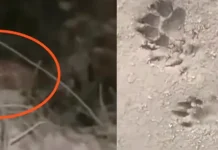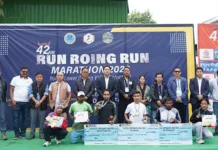JAIRAMPUR, May 17: More than 50 people from different villages participated in a ‘workshop on pig farming, poultry and hatchery along with training on the National Leprosy Eradication (Elimination) Programme (NLEEP)’ organised by the RK Mossang Memorial Society (RKMMS) here in Changlang district on Friday.
RKMSS chairperson Arup Kumar Choudhury brief the participants on the training programme and the NEC fund provided by the NERCORMP to selected NaRMGs and SHGs to procure artificial incubators and poultry and piggery units for the members of NaRGMs and SHGs after evaluating their performances.
Choudhury advised the participants to focus on income generating activities “such as large cardamom cultivation, Chandan plantation, Hollong plantation, Bonchom plantation, etc,” to earn more income.
He informed that the NERCORMP has sanctioned fund for mixed plantation, such as Chandan, large cardamom, Hollong, etc, in Sasum, Tengman and Nongthey villages, and suggested to the participants to purchase good quality plants from the local nursery here.
“A godown has been built by the Tangsa Patkai Multipurpose Cooperative Society, where a storage facility is available for the farmers to store their harvested large cardamoms at very nominal charges, and sell them when the market price increases,” he said.
Choudhury informed that the members of the selected SHGs and NaRMGs would be given free training by the RKMMS in maintaining cash books and ledgers.
The training in pig farming, poultry and hatchery was imparted by Veterinary Officer Dr D Techai, who also spoke about poultry farming and the various varieties of poultry.
The training on the NLEEP was imparted by Changlang District Medical Superintendent Dr H Tanzang, who said leprosy is “hundred percent curable with medicine.”
“Only an untreated infectious smear-positive multibacillary patient can spread leprosy by throwing out a large number of germs from the upper respiratory tract into the atmosphere while sneezing and coughing,” he said.
He urged the participants to refer leprosy patients, if any, in their villages to nearby hospitals for early treatment and to help eliminate the disease from the state and the country.


